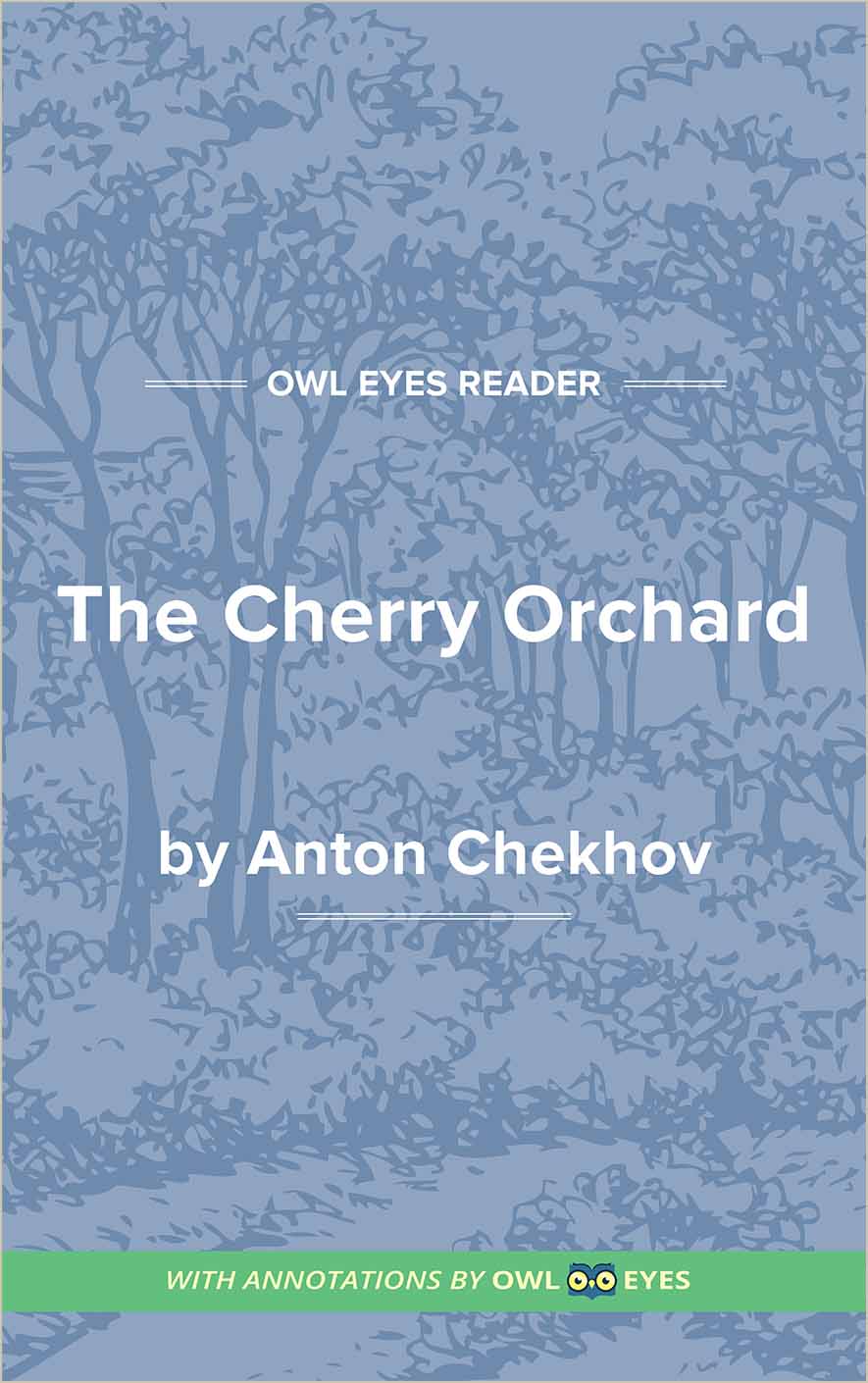- Annotated Full Text
- Literary Period: Realism
- Publication Date: 1903
- Flesch-Kincaid Level: 4
- Approx. Reading Time: 1 hour and 25 minutes
Set a few decades after the abolishment of serfdom by Tsar Alexander II in 1861, Anton Chekhov’s The Cherry Orchard is about an aristocratic family that is unable to prevent its beloved estate from being auctioned off. More symbolically, it is about the growth of the middle class in Russia and the fall of the aristocracy. A once-wealthy family's estate and beloved orchard is purchased by Lopakhin, who once served as a serf on the estate. While Lopakhin profits from this business opportunity, Madame Ranevsky and most of her family are unable to find a way to succeed within the new social order of Russia. Lopakhin gains personal satisfaction in displacing those who once ruled over him, whereas others, like Trofimov, seek new opportunities in new places. When the play was first published in Russian in 1903, Chekhov made it known that he intended the play as a comedy. However, most productions since have emphasized the tragedy of the events. The story itself presents a dark, sometimes comedic look at how people adapt to change and seek refuge in nostalgia, providing a memorable reading experience on how places and social customs influence our memories and expectations.
- Annotated Full Text
- Literary Period: Realism
- Publication Date: 1903
- Flesch-Kincaid Level: 4
- Approx. Reading Time: 1 hour and 25 minutes

